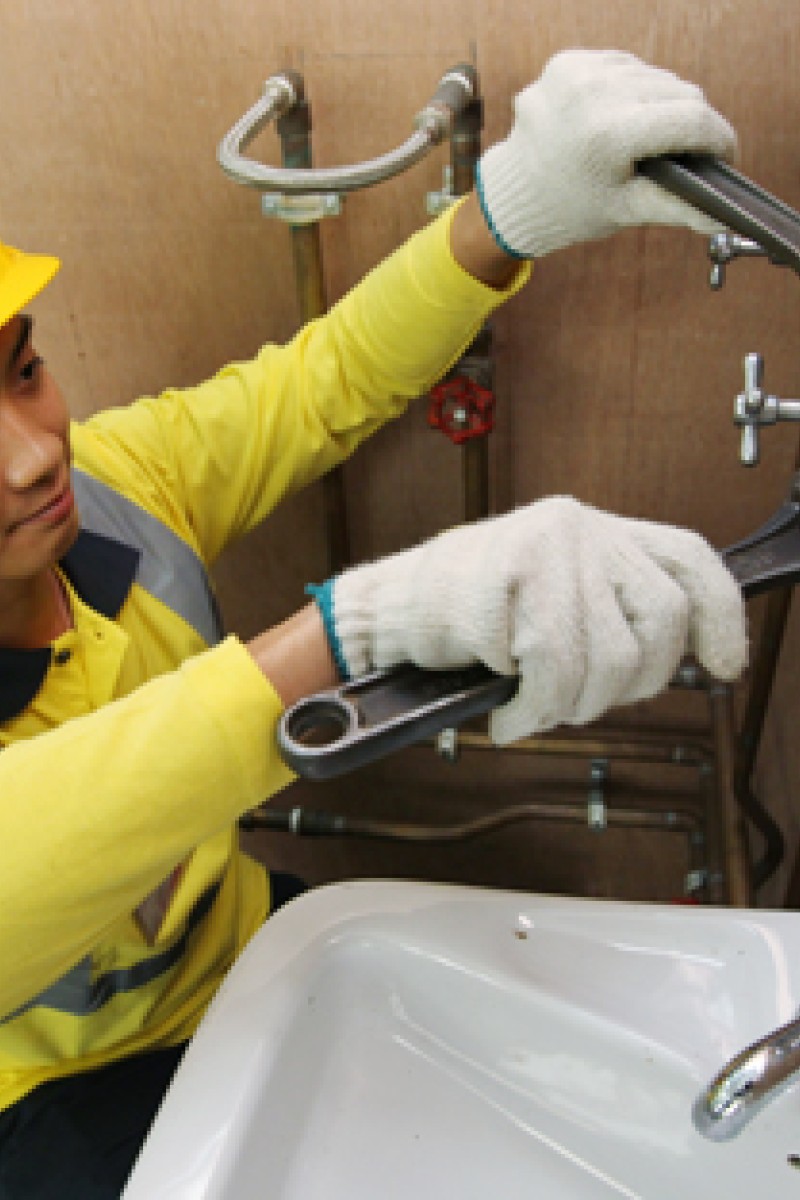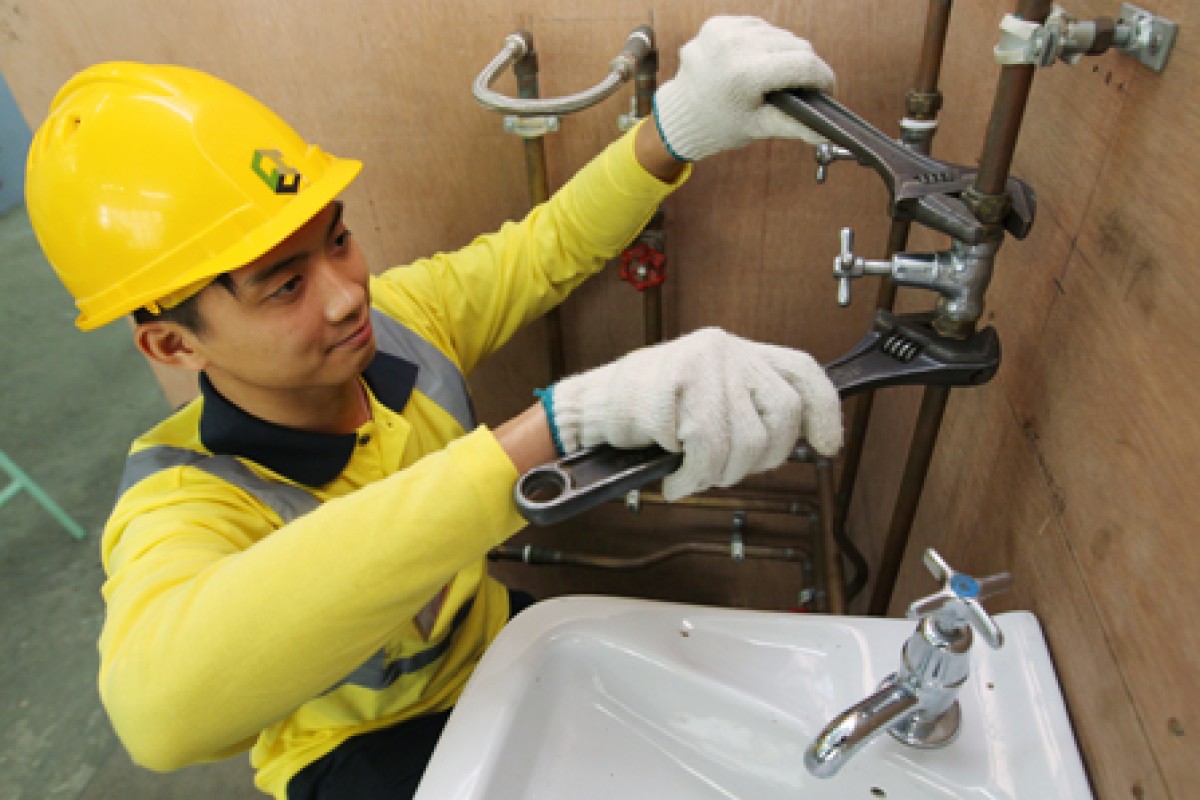
Being a plumber requires team work, dedication and keeping up with new ideas
 Ou Shaoliang is a plumbing trainee with the Construction Industry Council.
Ou Shaoliang is a plumbing trainee with the Construction Industry Council.Getting started:
The CIC offers a one-year course in plumbing. Students learn about water supply systems in buildings. They are given training on how to connect pipes and install bathtubs, sinks and toilet bowls. Students need to pass the intermediate trade test to graduate. Graduates can work as apprentices, receiving on-the-job training.
Moving up:
Apprentices can take the certificate trade test after two years working on the job. They can then move up to be a licensed plumber after passing further tests through the Vocational Training Centre, two years after gaining the certificate trade test qualifications.
A licensed plumber can carry out authorised plumbing work in domestic, commercial and industrial buildings.
With more experience, plumbers can become foremen, monitoring the work of other plumbers during construction projects.
Where to apply:
Craftsmen can choose to work on construction sites or for property management firms.
Race to the top:
Plumbing techniques and technology are ever-changing, so a plumber must keep his or her skills and knowledge up to date. The rules and regulations of water supply and construction also change frequently, so a plumber needs to follow changes to laws.
Plumbing jobs are usually given through referrals, so it is important to build good relationships with fellow plumbers, to get more work.
Rewards and benefits:
Craftsmen working on construction projects are employed on a freelance basis and are paid a daily wage. Those holding intermediate trade test qualifications earn about HK$450 a day. Those with certificate of trade test qualifications can earn up to HK$800 a day. Craftsmen at property management companies are paid a monthly salary of no less than HK$10,000.
A day in the life:
Plumbers at construction sites work six days a week, resting on Sundays. They begin at about 8.30am, when the foreman gives them instructions.
Plumbing involves team work: individual plumbers are assigned to install sections of the pipe system, while others look for defects in the already-installed pipelines.
Work usually ends by 6pm.
Jargon
Pipe wrench: An adjustable wrench used for turning soft iron pipes and fittings. It comes in various sizes.
Sweating, or melting of solder: Two copper pipes are connected by a pipe joint. At the joint edges, there are solder rings. The solder rings at the joint are melted using a torch. When the solder cools, it forms a very strong bond which can last a long time. In plumbing, solder-connected rigid copper is usually used for water supply line connections.